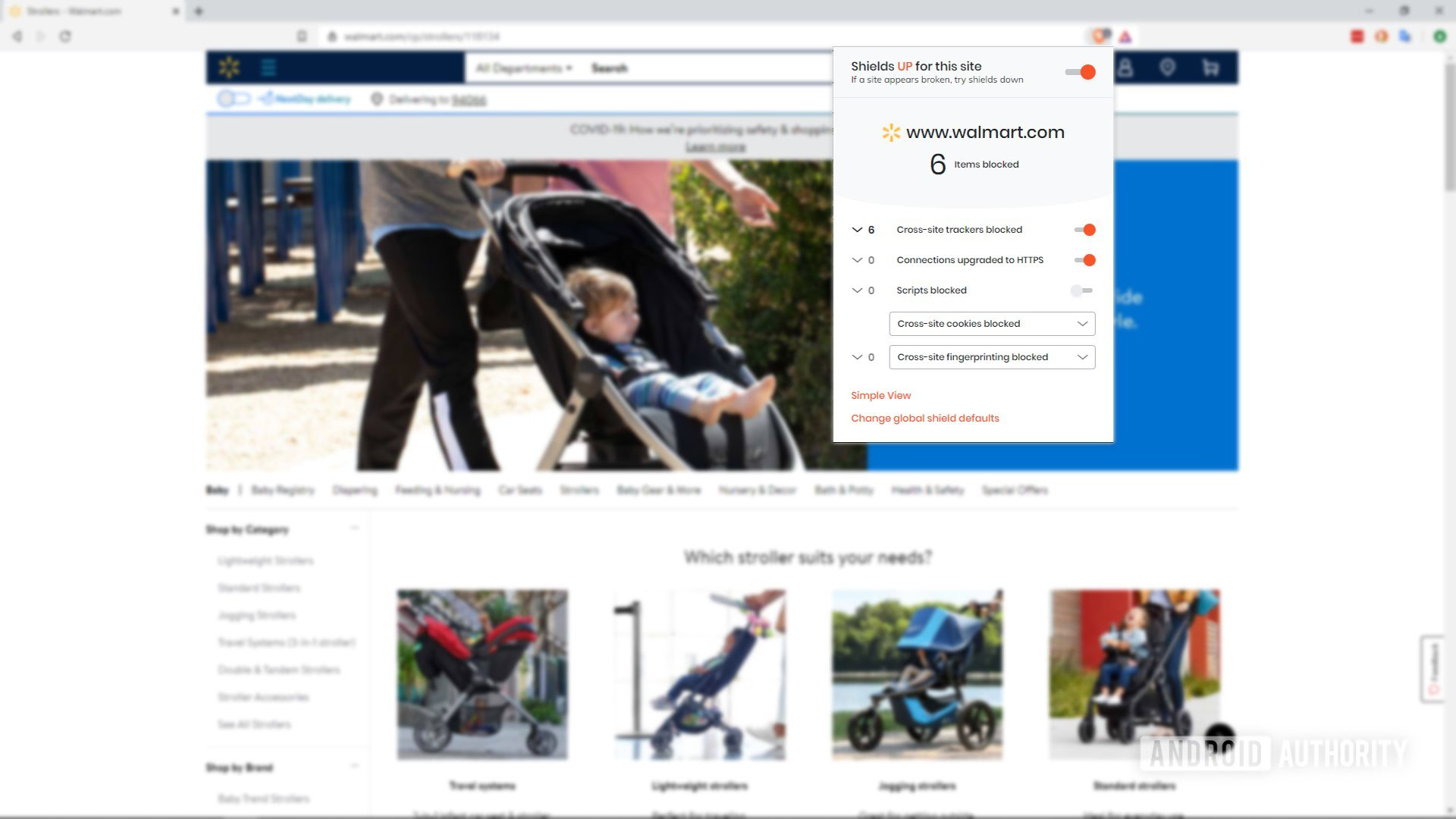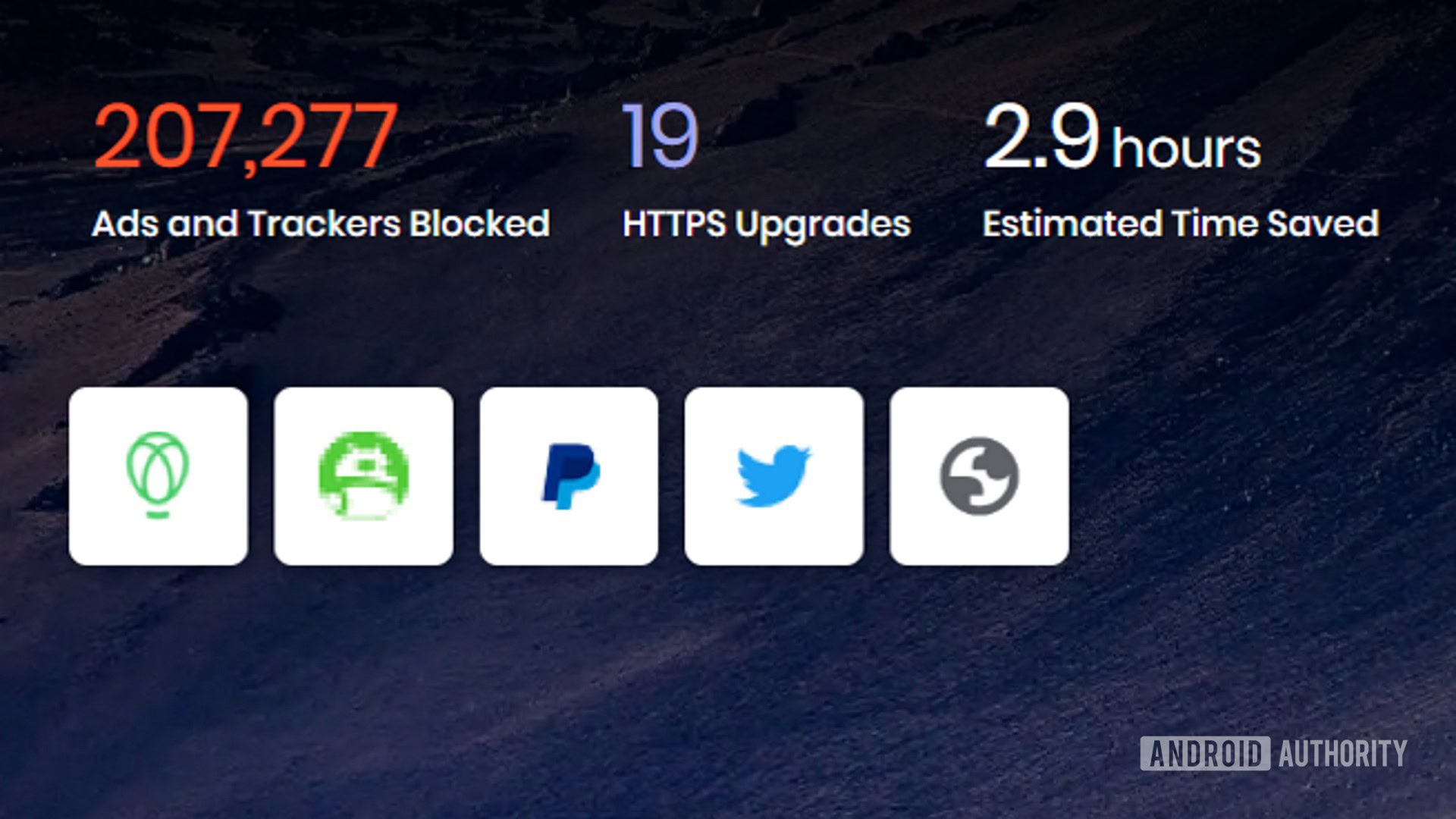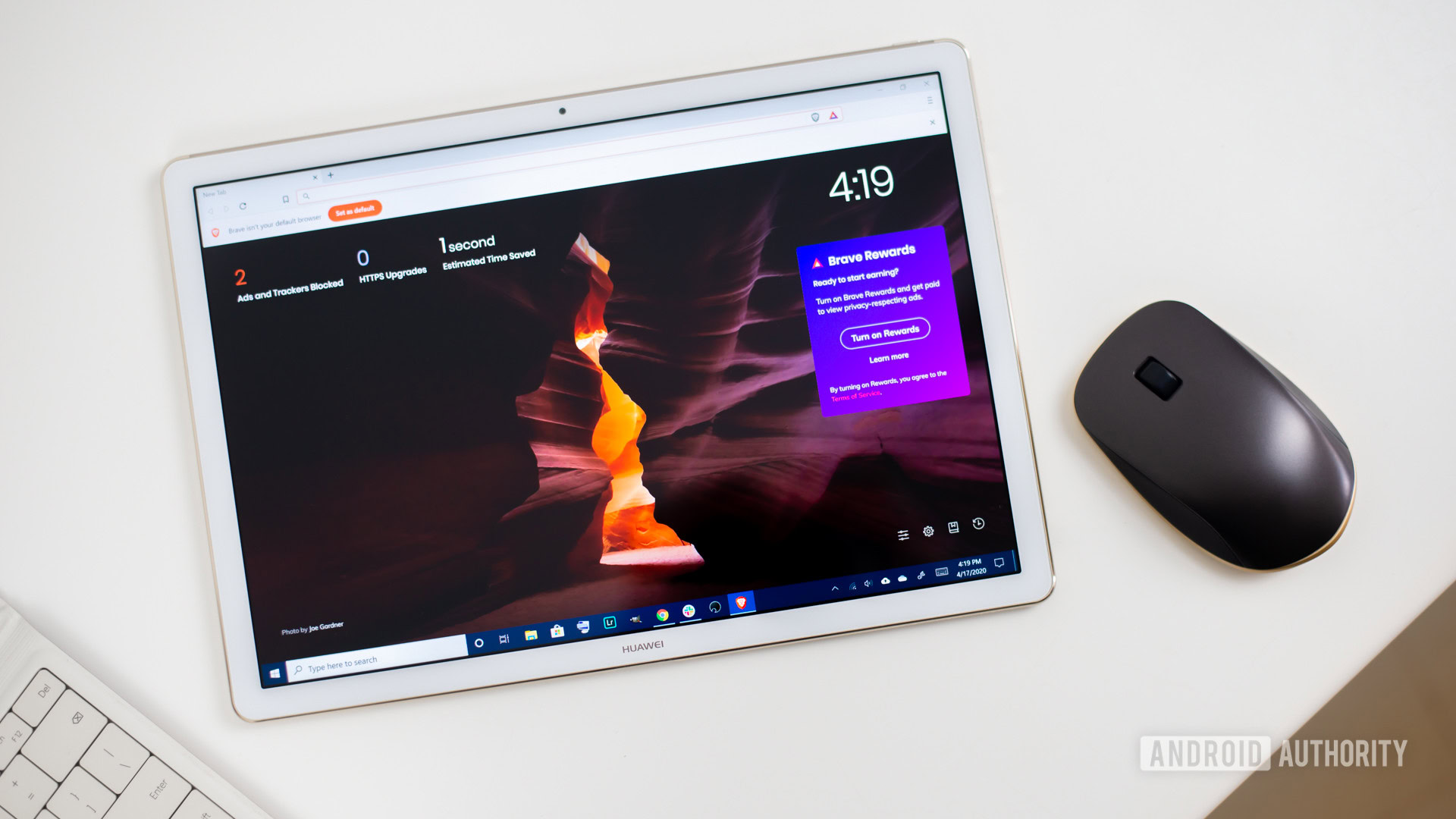Affiliate links on Android Authority may earn us a commission. Learn more.
Should you switch to the Brave Web Browser?
Published onFebruary 14, 2024
“You fought in the Browsers Wars?” asked Microsoft Edge. “Yes. I was once a Web Browser, the same as your father, ” said Internet Explorer. OK, that doesn’t quite have the same dynamic as Luke’s and Obi Wan’s conversation in a New Hope. However, the browser wars were a thing at one point. I also (wrongly) thought they were over, except for a few skirmishes. But once in a while, someone, somewhere, says to themselves, “What we need is another web browser.” At that point, I would typically groan and move on. However, things are a little different with Brave browser.
Historically, a new web browser meant some nerd wanted to write a better HTML/CSS rendering engine and a super-fast JavaScript engine and then wrap a UI around it. The engine wars are basically over with the Chromium engine, called Blink, basically powering everything (Chrome, Opera, Edge, Vivaldi). The notable exceptions are Firefox and Apple’s Safari.
Brave browser uses Blink, so it isn’t special in that regard. What makes it special is its emphasis on making privacy and safety front and center. Let’s take a look at what this browser brings to the table in this Brave browser review.
The problem is Ad Tracking

Most browsers do a good job of keeping you secure while browsing. There is universal support for secure HTTP connections, support for incognito tabs (useful when you are using a public computer and not your own), and various levels of sandboxing support that stop one tab from stealing data from another. However, one area where privacy has been slowly eroded is advertising.
To be effective, advertising needs to be targeted. It is pointless showing me ads about rock climbing equipment or baby strollers, but show me an advert for the latest bit of tech, and maybe, just maybe, I will click. To send the right ads to the right people, advertisers build up virtual profiles about your web browsing activities and start to hone in on your likes and dislikes. That, in itself, sounds harmless enough. Maybe even useful. However, the tracking techniques that advertisers use are getting more and more invasive.
Online advertising is big money. Google has an annual revenue measured in the billions of dollars, over $305 billion for 2023. Most of that money comes from advertising. Sure, it sells apps and movies, offers cloud services, sells Pixel devices, and more. But most of the money comes from advertising. That is a lot of dollars invested in selling ads based predominantly on a model where money changes hands if, and only if, an advert is clicked.

As with most business ventures, the lines between ethical behavior and the relentless pursuit of profit seem to blur the bigger the sums of money. For a long time, the advertisers were winning, but consumers have started to rebel. While initiatives like Do Not Track and the EU’s GDPR have attempted to clip the wings of advertisers, they have generally been badly conceived and badly implemented. For most people, the GDPR just means they have to click a message to accept cookies every time they visit a new website. More about that in a moment.
The most drastic option available to users is to completely block data-collecting trackers, which, in turn, means blocking most adverts.
Take control back with Brave browser
There are lots of options available for those who wish to block trackers, but Brave browser makes it easy, and it is the default behavior. Most advertising platforms use techniques to try to identify you and track you as you move across the web. Brave browser blocks all this, allowing you to browse freely. Along with the privacy advantages, there is also a performance boost. According to Brave’s internal testing, the Brave web browser can load the major news site up to six times faster than Chrome, Safari, and Firefox on mobile and desktop. Why? Because all the extra images, JavaScript, and tracking data are no longer needed.

Built-in Tor
Tor is the popular name (and acronym) for The Onion Routing protocol. It was developed by the United States Naval Research Laboratory and works by routing your network traffic through several Tor nodes, ensuring that your computer never communicates with the server directly.
Like most browsers, Brave has a private window option. When using a private window, Brave doesn’t keep any data about your browsing. The sites you visited won’t show up in the history, while cookies, form data, and site data vanish when you close the window. But Brave goes one step further; it offers a private window with Tor connectivity.
With Tor connectivity, there are two extra benefits. First, your IP address is hidden from the sites you visit (due to the nature of Tor). Second, the sites you visit are hidden from passive observers who are monitoring the network.
The downside of Tor is that it may slow down browsing, or break some websites.
But won’t that harm publishers who rely on advert income?

The simple answer is yes, and for me, that is a huge downside. Advertising income is essential for hobbyists who need to fund their websites or YouTube channels, and independent websites free of corporate shackles – like Android Authority. Until now, I haven’t used an ad blocker because I know that good content isn’t free. Everyone needs to eat, and here at Android Authority, we work super hard to bring you the best content we can. But Brave has a surprising answer to this problem – Brave Rewards.
Rather than tempting you to click on adverts, Brave anonymously calculates the amount of attention you give the sites you visit. Once a month, the Brave Rewards program will compensate the sites you’ve visited. You can also tip creators directly and remove any sites you don’t want to support.
Brave has a surprising alternative to traditional advertising: Brave Rewards.
The twist is that the currency behind Brave Rewards isn’t the US dollar, the Euro, or even the Chinese Yuan, but a cryptocurrency called BAT (Basic Attention Token), which itself uses the Ethereum blockchain. The idea is that blockchain digital advertising can offer a decentralized, transparent digital ad exchange.
Stage one in replacing the traditional advertising model is to bring the Brave browser to the mainstream along with its built-in use of BAT. Stage two is for users, publishers, and advertisers to use BAT as the means of funding advertising and attention-based services. As the name implies, the token’s value is derived from — or denominated by — user attention, the one commodity you have to spend while using the web.
BATs, crypto exchanges, and tips

Like all cryptocurrencies, you need to keep your tokens in a wallet. Brave includes a built-in secure crypto wallet. The Brave Wallet allows you to manage tokens and NFTs without leaving the browser; it has everything you need in one secure and convenient place. You can also use an online crypto service (more about that in a moment).
You can earn tokens by viewing Brave Ads. Ads presented are based on your interests, as inferred from your browsing behavior. However, this time, no personal data or browsing history ever leaves your browser. When you click on an ad, you earn some BAT.
When you see something you like online, you can support the content’s creator by sending a tip, as a thank you. Verified creators get paid their tips during the first week of each calendar month. You can also set a monthly recurring contribution.
If you want to turn traditional currency into BATs, you can fund your wallet using any cryptocurrency exchange, such as Coinbase.com, Crypto.com, or Uphold.com. You can also buy and sell directly from the Brave Wallet via the Ramp fiat/crypto service.
But Chrome is a memory hog!

Even with revolutionary talk of overthrowing the advertising industry, Brave browser still needs to be a decent web browser to gain any traction. Thankfully, it is. I tested the JavaScript speed of Brave, and it is faster than Chrome and Firefox but slower than Microsoft Edge. When it comes to memory use, Brave uses less memory per tab than Chrome, Firefox, and Edge. These are good signs. Since it uses the same internals as Chrome and Edge, the browsing experience is as expected, and I couldn’t detect any differences or anomalies in rendering, etc.
Brave combines better privacy and safety with a browsing experience that's faster Chrome — despite being Chromium-based.
Another advantage of Brave’s Chromium roots is that you get access to the Chrome Web Store. When you click on Extensions, you get taken directly to Google’s web store, not even a copy or cheap replica, but Google’s actual store. That means that migrating to Brave browser is very simple for Chrome or Edge users. You can also import your bookmarks from Edge, Chrome, Firefox, or an HTML file. I didn’t spot a way to import saved passwords (which I guess is a good thing), but if you are using a password manager like LastPass or Dashlane, then that won’t matter.
One feature missing in early versions of Brave was Sync. But those days are gone and you can now sync the data between all your devices using Brave. You can opt to Sync everything, or specific things like bookmarks, extensions, history, and passwords.
What is Brave’s default search engine?
We know this is an important factor for many of you. If you’re wondering which search engine Brave browser uses, it’s its own. It’s called Brave Search, and it is set as the default search engine from the get-go. We think it’s a fairly good search tool, but we know it’s hard to beat Google, or get used to anything else. The good news is you can easily change it!
How to change the default search engine on Brave browser:
- Launch the Brave browser.
- Click on the three-line menu button in the top-right corner.
- Go into the Settings.
- Click on the Search Engine option in the left column.
- Click on the drop-down menus next to the Normal Window and Private Window options.
- Select your search engine of choice. You can pick between Google, DuckDuckGo, Qwant, Bing, Startpage, and Ecosia.
Will you switch?
Brave browser has quickly become part of my normal workflow. I have been using it for some sites/tasks every day, and the reasons for not migrating to it fully are, well, non-existent. Brave is available for Windows, macOS, Linux (Debian, Ubuntu, Mint, and Fedora), iOS, and Android. I have tested it on all five, and the experience is as consistent as any other browser across such a diverse set of platforms. Sadly, there is no support for Windows on Snapdragon or for boards like the Raspberry Pi. However, there is a version for the new Macs using the Apple Silicon.
If you want to give Brave a try, and I recommend that you do, then use the link below.